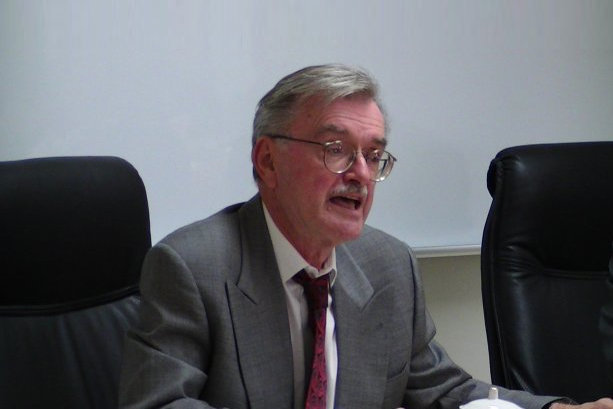Capitalism is weakening: Professor Onuf

TEHRAN – Professor Nicholas Onuf, a primary figure among constructivists in international relations, tells the Tehran Times that “I expect the world situation to worsen—and not just in the short run.”
Onuf says “Now that capitalism is weakening, the world economy is suffering, people are angry, and the anti-liberal right is emerging, the states of the EU are politically embattled simultaneously from within and without.”
Following is the text of the interview:
Q: In providing a context for President Trump to withdraw from JCPOA (the Iran nuclear agreement), some scholars described the global climate as an “age of extremes. Why we live in the age of extremes?
A: In my view, what appears to be an age of extremes is indeed a time of transition—a transition from the time of a thriving global capitalist economy to a time of declining rates of growth, a distorted distribution of wealth, rising frustration and anger, the breakdown of civility, resort to violence, and a revival of religious certitudes. Trump is a symptom of this malaise, to which he has become a contributing if minor cause. Many progressive intellectuals believe that new technologies will save global capitalism; the turbulence of the moment is merely an inflection in a long-term curve of material growth and liberal values. I do not believe this, and I expect the world situation to worsen—and not just in the short run.
Q: Some argue that the age of extremes because of empowering extreme right wing and populists in U.S. (president Trump) and in some European countries. Empowering persons such as Trump showed the failure of liberalism and mainstream schools of thought. What do you think about it?
A: As I have just suggested, liberalism succeeded as an ideological support for, and constraint on, global capitalism for long periods in the unfolding of the modern world. It failed in the past: notably in the last decades before World War I, when workers were brutalized, imperialism flourished, and the long peace crumbled; and between the world wars, when fascism wreaked havoc in Europe and Asia, threatened the moral credibility of Western institutions, and prompted liberal schizophrenia—on the one hand, support for a resuscitated, globalizing, exploitative capitalism, and on the other, an obsessive preoccupation with human rights as liberalism’s great gift to humanity.
Q: The European Union is the ultimate realization of the neofunctionalist theory of international integration. Why is the EU not in the position and power to resist President Trump’s unilateralism?
A: Neofunctionalist theory predicts that institutions devoted to narrowly defined technical tasks will increase social welfare and displace politics among the nation-states creating those institutions. The very success of those institutions renders those states ever less able to deal with the overtly political machinations of those states not implicated in these institutional arrangements. Neofunctionalism works as predicted when global capitalism thrives and people benefit from material prosperity. Now that capitalism is weakening, the world economy is suffering, people are angry, and the anti-liberal right is emerging, the states of the EU are politically embattled simultaneously from within and without. And yet their technocratic elites still hold on to the liberal and function-oriented values that paid off for so many decades. No one should be surprised.
